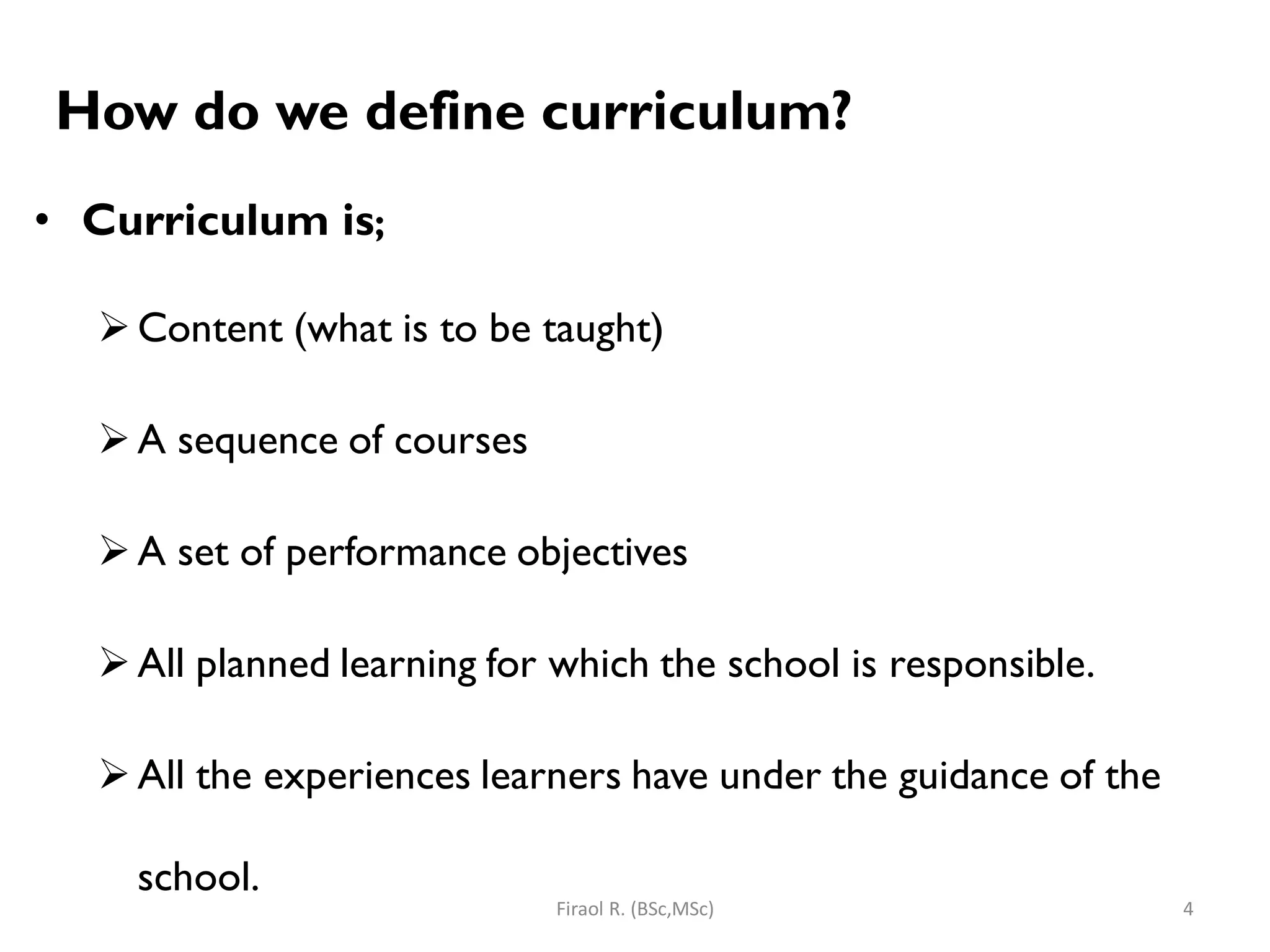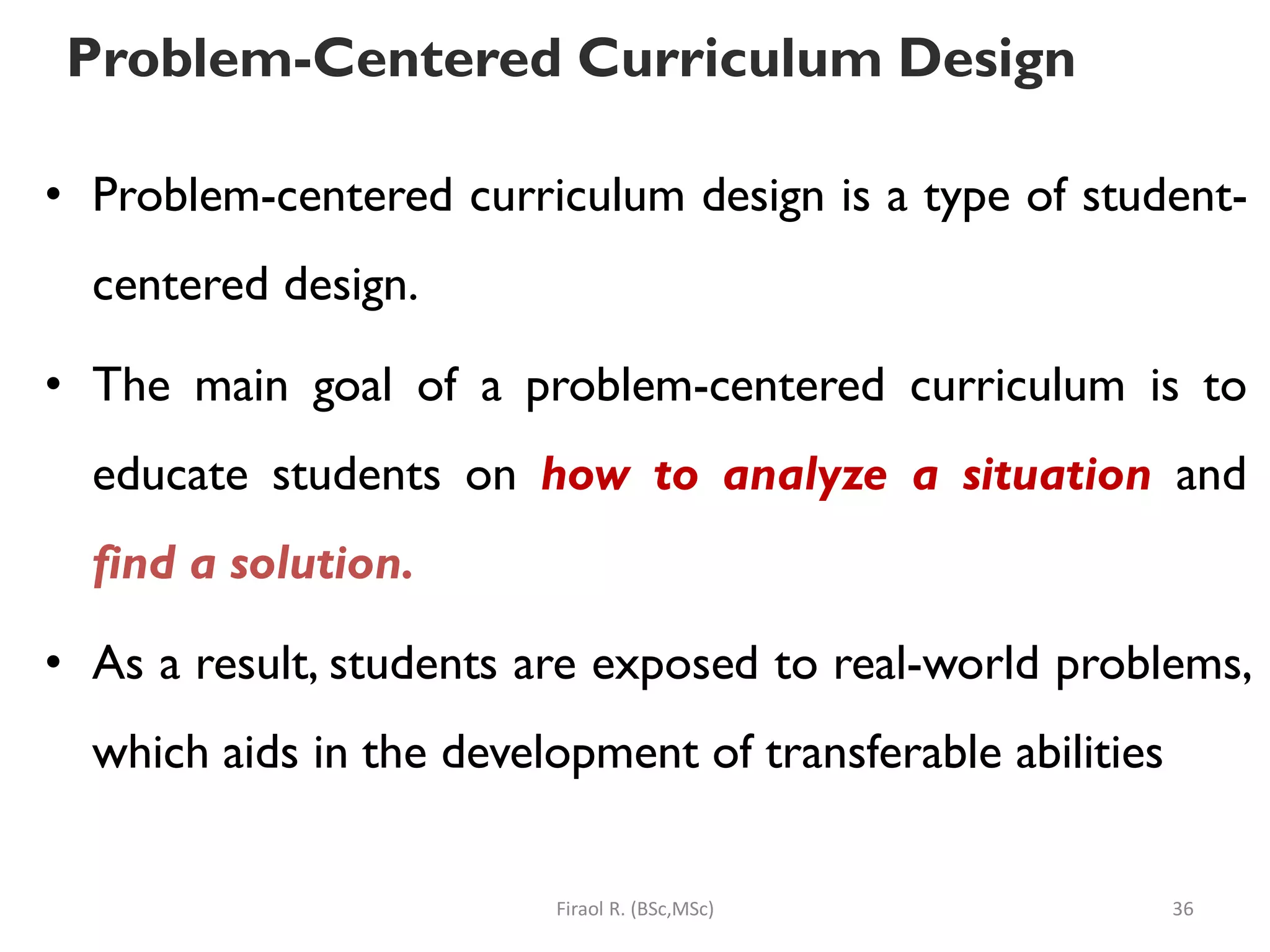The document discusses curriculum design, development, implementation and evaluation. It begins by defining key terms like curriculum and describing different models of curriculum design including subject-centered, learner-centered and problem-centered designs. It then examines different educational philosophies that underpin curriculum development like perennialism, essentialism, progressivism and reconstructionism. The document also outlines the major components of curriculum, the different phases of curriculum development including design, development, implementation and evaluation, and factors that influence effective implementation.







































































